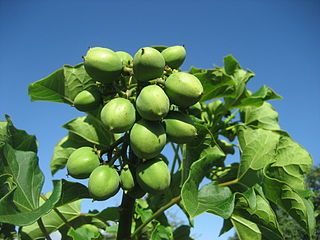Note on Synthetic and Biofuels
I just published a short post on the article: U.S. Air Force Report to Congress Bashes Navy’s Biofuels Program in which I mentioned that I find the people who presume to tell the U.S. Navy how it should be planning to defend our country 30 years hence to be “sadly comical.”
Having said this, I will be surprised if biofuels has a long-term future. Helping my son with his botany this semester has reminded me how little of the energy a plant absorbs from the sun can be made available for human benefit. I predict that PV, CSP, and wind, which are more direct and efficient ways to capture solar energy will win the day.
To the degree we need liquid fuels, I believe that synthetic fuels will emerge to make this happen. And coincidentally, I had an email exchange with Dr. Doty (the developer of WindFuels – syn fuels from off-peak wind) earlier today. I remain bullish on what he’s doing.


“I predict that PV, CSP, and wind, which are more direct and efficient ways to capture solar energy will win the day.
To the degree we need liquid fuels, I believe that synthetic fuels will emerge to make this happen.”
Craig
To make PV and wind viable at very large scale integration I agree we will need synthetic fuels for energy storage as this is likely to be substantial, probably multi TWh fro countries the size of the UK and chemical fuels are currently the only viable way of storing this sort of quantity of energy. Bulk storage can also substantially improve energy security too. However, I would go further; the ideal fuel may well be solid, what I refer to as ‘Green Coal’ or synthetic carbon, (SynC). The problem is that often the best places for high PV/CSP resources are usually short of water which would be needed to produce the hydrogen to produce liquid fuels, but SynC could be produced with virtually zero net water use.
I think there is a place for now for liquid biofuels and compressed / liquified biogas as a partial transport solution but I do have strong reservations about growing crops specifically to produce liquid fuels.
To me, the biofuels which make most sense are those which utilize by products such as sewage sludge, animal manure and used bedding, food waste, straw, forestry residues such as tree bark – with the processing carried out in a way that recovers trace elements essential to plant growth and returns them to the soil.